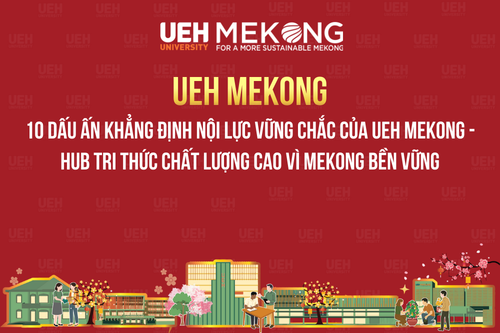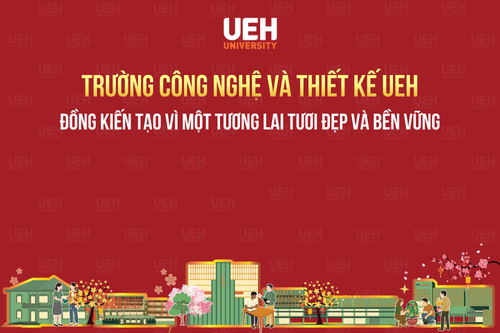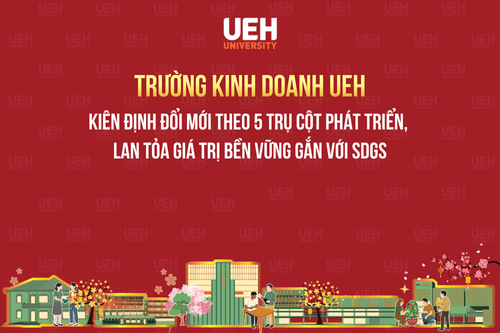
UEH expert: Ho Chi Minh City was confident, but the situation changed too fast
26 Jul, 2021
[Zing Newspaper] Economic experts believe that a higher level of social distancing in Ho Chi Minh City is necessary from the beginning. However, over a month, the city tried to satisfy many other different goals.
.jpg)
In the first week of July, Ho Chi Minh City witnessed an increase in the number of new cases of Covid-19 at a record rate of 400-700 cases/day.
The constant increase in the number of patients has led the city leaders to decide to apply social distancing under Directive 16.
As in the previous message of Prime Minister Pham Minh Chinh, he said that drastic measures to prevent and curb the spread of the pandemic could disrupt the production supply chain. Nevertheless, when it is necessary, especially at this time, people's lives and health must come first and foremost.
The difficult situation of HCMC
When the Ho Chi Minh City government decided to apply social distancing according to Directive 16 citywide, people agreed with the concern: "Why don't we apply this Directive sooner, right at the time the outbreak in Go Vap broke out? If blockade measures were applied drastically in June, the pandemic might not have lasted until July."
"Ho Chi Minh City had confidence in its ability to control the pandemic. After that, the situation changed quite quickly" - MSc. Le Thanh Nhan
MSc. Le Thanh Nhan, doctoral research fellow, lecturer at the School of Economics of the University of Economics Ho Chi Minh City, said that Ho Chi Minh City had applied for the blockade order less extremely in the past time and cautiously. This has many causes.
The first reason is that Ho Chi Minh City has a pivotal role to play as the economic center. If Ho Chi Minh City stops working, the situation is like when the breadwinner in a family loses his job, putting the whole family into financial difficulty.
.jpg)
MSc. Le Thanh Nhan. Photo: ueh.edu.vn.
"The city must harmonize many different goals. If from the beginning of June, Ho Chi Minh City applied the strictest and immediate social distancing measures, I think there would be a lot of objections, including the businesses", Mr. Nhan shared.
The second reason, Mr. Nhan said that, at first, Ho Chi Minh City had confidence in its ability to control the disease. Nevertheless, after that, the situation changed quite quickly and was difficult to control.
After a month of quarantine according to Directive 15 and Directive 10 but failed to control the pandemic, Ho Chi Minh City received support from the Central Government. This is the basis for the Government to act more decisively than before.
"When Ho Chi Minh City applies social distancing measures under Directive 16, the next 15 days will be an important period. People have high expectations for the actions of the city government", Mr. Nhan said.
Prepare the mind
After a month of trying not to apply Directive 16 to the whole city to reduce damage to the economy, in the end, the leaders of Ho Chi Minh City could not avoid this difficult decision.
With a tough decision to prioritize the health of its residents, now is the time for the city to estimate how the economy will be affected.
"I believe the majority (90%) of Ho Chi Minh City people are fine when implementing the social distancing order under Directive 16. However, the percentage of people with the lowest living conditions in society will face difficulties. The problem is how this group of 10% will access supporting resources. That is an issue that the Government should be concerned about in the foreseeable future." Mr. Le Thanh Nhan shared.
.jpg)
Low-income people wait in line for charity meals during the Covid-19 pandemic in Ho Chi Minh City. Photo: Ngoc Tan.
Mr. Nhan highly appreciates the Government's message hoping that everyone would understand and unite to fight the pandemic if a large-scale blockade is required. "Businesses in Ho Chi Minh City will unite and support the Government, and they have to calculate the reduction in production scale, trying to overcome difficulties for 1-2 weeks", said a microeconomic expert.
"The impact of Covid-19 on Ho Chi Minh City will slowly spread to provinces that do not have the pandemic." - Dr. Chau Thanh Vu
Talking to Zing, Doctor of Economics Chau Thanh Vu, Harvard University (USA), said that Ho Chi Minh City people are both product suppliers and consumers of other provinces' economies. Therefore, the impact of Covid-19 on Ho Chi Minh City will slowly spread to provinces that do not have the pandemic.
In addition, Ho Chi Minh City is a huge contributor to the national budget. The city suffers from long-term impact will reduce the national budget, affecting the provinces that rely on the Central budget allocations.
Dr. Chau Thanh Vu said that social distancing measures would obviously have an impact on the economy. Accordingly, people actively staying at home will reduce the consumption demand of the market, especially in service industries.
.jpg)
Doctor of Economics Chau Thanh Vu. Photo: NVCC.
When the incomes of workers and business owners in the service sector suffer, they will cut spending on consumer goods and investment by other sectors.
This causes the economic shock caused by Covid-19 to spread to other sectors of the economy. In fact, in the economy, the spending of one group of people is the source of income for another.
Financially, if many businesses go bankrupt, the banking system will be severely affected by bad debts, affecting credit supply when businesses need to borrow the most.
If there is not enough money to pay employees, rent, and interest, businesses will be forced to close and go bankrupt. Rebuilding economic relationships (for example, finding banks willing to lend to start-ups or workers finding suitable jobs) can take a long time.
Solutions to minimize the impact
Economist Chau Thanh Vu said that Ho Chi Minh City authorities and the Government could apply some more policies to reduce the impact of the pandemic on people and businesses.
Firstly, it is necessary to increase unemployment insurance, especially to ensure income throughout the time the economy is affected by Covid-19, not one-time support as currently under Resolution 68/NQ-CP.
Secondly, the Government needs to support and help small and medium enterprises avoid bankruptcy with non-profit capital. The amount of support should be used for the purposes of paying employees' salaries, paying rent and paying interest on bank loans.
"Currently, there is only a lending policy with low-interest rates (or 0%) for businesses to pay to workers who are stopped working. The Government should expand these preferential loans," Mr. Vu said.
.jpg)
Many service stores in Ho Chi Minh City had to close because of the pandemic. Photo: Chi Hung.
However, Government lending only can help businesses solve liquidity problems (have money to spend at the moment). If the Covid-19 impact lasts longer (expectedly), businesses are still likely to close and lay off workers.
"It is necessary to increase unemployment insurance, not a one-time support as currently." - Dr. Chau Thanh Vu
Therefore, Dr. Chau Thanh Vu said that the Government should consider providing non-refundable support, especially for industry groups directly affected by Covid-19, instead of lending.
In addition to the financial support policy, the promotion of public investment disbursement to create more jobs in the construction sector is also being appreciated by the Government. In an economic crisis where private investment falls sharply, the Government needs to use public investment to offset the total demand of the market.
However, Dr. Chau Thanh Vu said that promoting the disbursement of public investment may not be the most appropriate policy at the moment. He said that disbursing an infrastructure project would not be as good as directly using that money to support Ho Chi Minh City businesses.
"This also shows that the Government should consider reducing the contribution rate to the Central budget of Ho Chi Minh City during the pandemic period," said the expert from Harvard University.
What to prepare for the post-pandemic economy?
Naturally, workers will want to find other occupations when their current occupation is affected by Covid-19. However, overall, this transition will be temporary, and I expect most people to return to their previous jobs once Covid-19 is over.
However, it must also be said that Covid is an opportunity to restructure businesses in particular and the economy in general. For example, the education industry was initially "forced" to switch to online teaching due to the pandemic, but it turns out that distance learning has many benefits.
Businesses also see the benefit of not requiring employees to work at the headquarters five days a week but can let employees work from home.
Like other crises, Covid-19 may permanently eliminate businesses and industries with outdated technology and lack of competition. It is too early to announce which industries will be "hot" in the post-Covid-19 economy, but it is conceivable that these are groups of industries that can be digitized and minimize direct human contact. - Dr. Chau Thanh Vu.
Author: Dr. Chau Thanh Vu, MSc. Le Thanh Nhan.
Source: Zing Newspaper.
.jpg)










